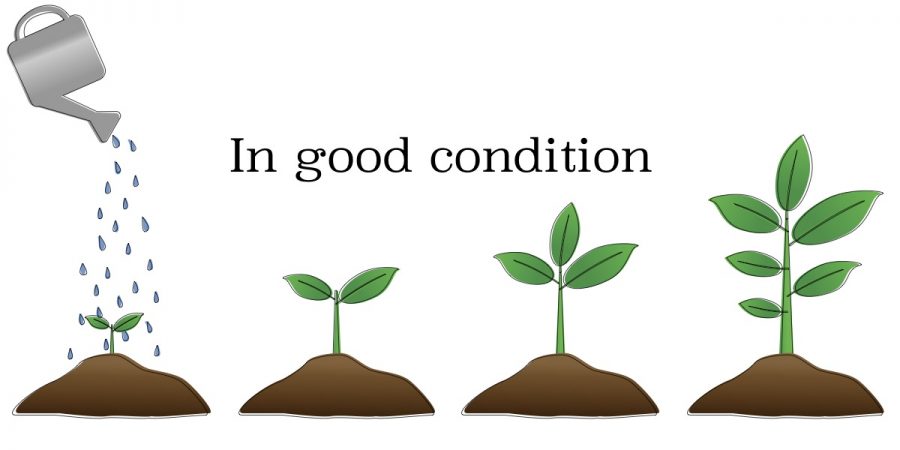In good condition
Anxiety rises through rise in pandemic cases
“In good condition” is a column that discusses topics of mental and physical health. It provides examples of ways to be in tune with both subjects and focus on one’s all-around “condition.”
I am fortunate to have a home environment where access to knowledge is encouraged and available — books, online activities and a flow of conversations are at my fingertips.
I now remind myself of this privilege every day, as this is not the case for everyone as the COVID-19 pandemic continues to progress.
However, with the strong encouragement of self-isolation and social distancing, these methods may not be enough for individuals who face an extreme spike in anxiety around the pandemic.
Even with my own privileges, I face challenges through this period of isolation. Everyone does, in their own way, as all of the unknown may lead to an anxious panic that often spirals beyond control.
The New York Times currently has a continuous live update of the confirmed COVID-19 cases throughout the United States. However, this number is only a fraction of cases confirmed around the world.
While I am thankful for the variety of news outlets I can access to gain insight on the pandemic’s progression, watching a sea of red circles exponentially increase in the country or even my own home town can cause a panic very quickly.
Throughout the last week at home, I have attempted to flood my own social media feed with large amounts of positivity with the goal to create an equilibrium with the overflow of news outlet updates.
Here is a list of accounts that provide credible information on the COVID-19 pandemic, while simultaneously generating a sense of hope for those who feel overwhelmed by the foreseeable future.
- The Happy Broadcast: They showcase positive statistics within the pandemic responses around the world.
- The Crisis Text Line: They provide communication resources for those who suffer with mental illness and now provide outlets for anyone who faces anxiety around the pandemic.
- Information is beautiful: They curate a constant flow of graphs on the pandemic updates with a calming approach and un-distorted graph layouts.
- Millennial therapist: Sara Kuburić, a professional psychotherapist, provides graphics with encouraging words for those facing anxiety through isolated quarantine or the pandemic as a whole.
NPR has also provided a list of podcasts to help manage stress surrounding COVID-19 and still remain informed with news updates. My favorite to listen to has been “A Social Distancing Survival Guide” by Sam Sanders from NPR.
As of now, I am attempting to reshape this abundance of time, in a way that allows a gentle schedule for my mental health and the tasks I hope to accomplish.
The CDC has also provided additional resources for those who seek options on how to manage newfound anxiety or distress.
For me, this process has involved sharing time with loved ones, taking extra time to reflect on my emotions and allowing myself to rest if needed.
I will not deny that it requires a lot of endurance to keep yourself motivated, when for many it may only feel like a continuous stream of laziness and unproductivity.
Yet, this seemingly never-ending cycle has to stop at some point. Spiraling into a ball of stress will only make things worse.
While everyone has most likely heard the phrase, “You are not alone” — for the first time, it seems that these words can truly be visualized in communities around the world.
It is time to rest, reset, release, redefine and realign — to be conscious and not take this time for granted, but also find humanity within yourself and allow all the emotional support you need.
While the importance of internal health is a focus of this column, my heart goes out to all individuals who are currently facing additional crises and concerns throughout this time — for all those who have faced the virus first hand, workers who still continue to provide for their community in need and to the world, as the future is uncertain.
For more information and resources for anxiety and mental health, contact your local health professionals or the Anxiety and Depression Association of America.
Nelson can be reached at nelsoner1654@uwec.edu.

Evelyn Nelson is a third-year Journalism and Environment, Society and Culture student. This is her fifth semester on The Spectator. She enjoys fulfilling her dream of being a barista, at SHIFT Cyclery and Coffee Bar. Stop by for some great coffee and conversation!

